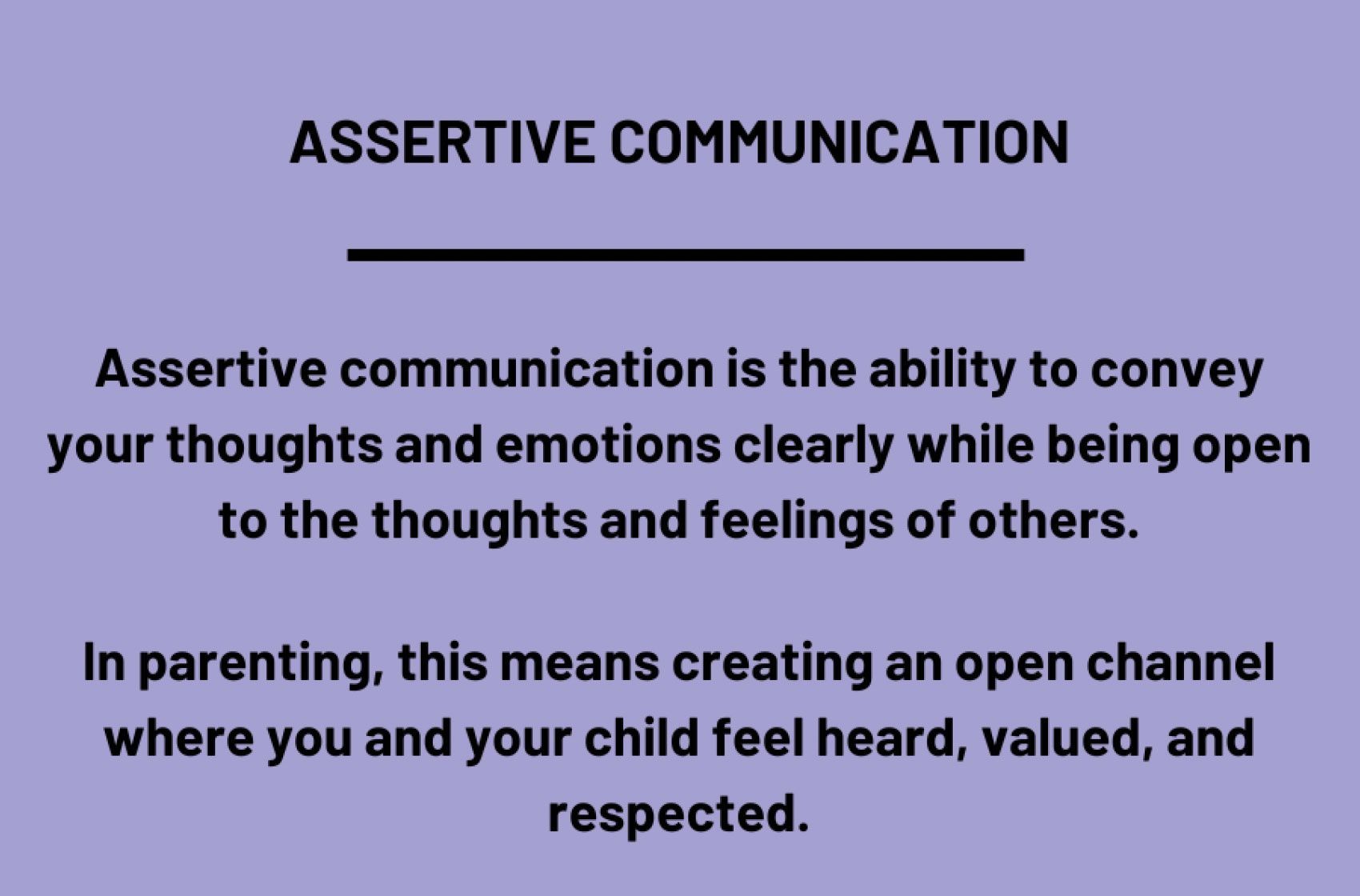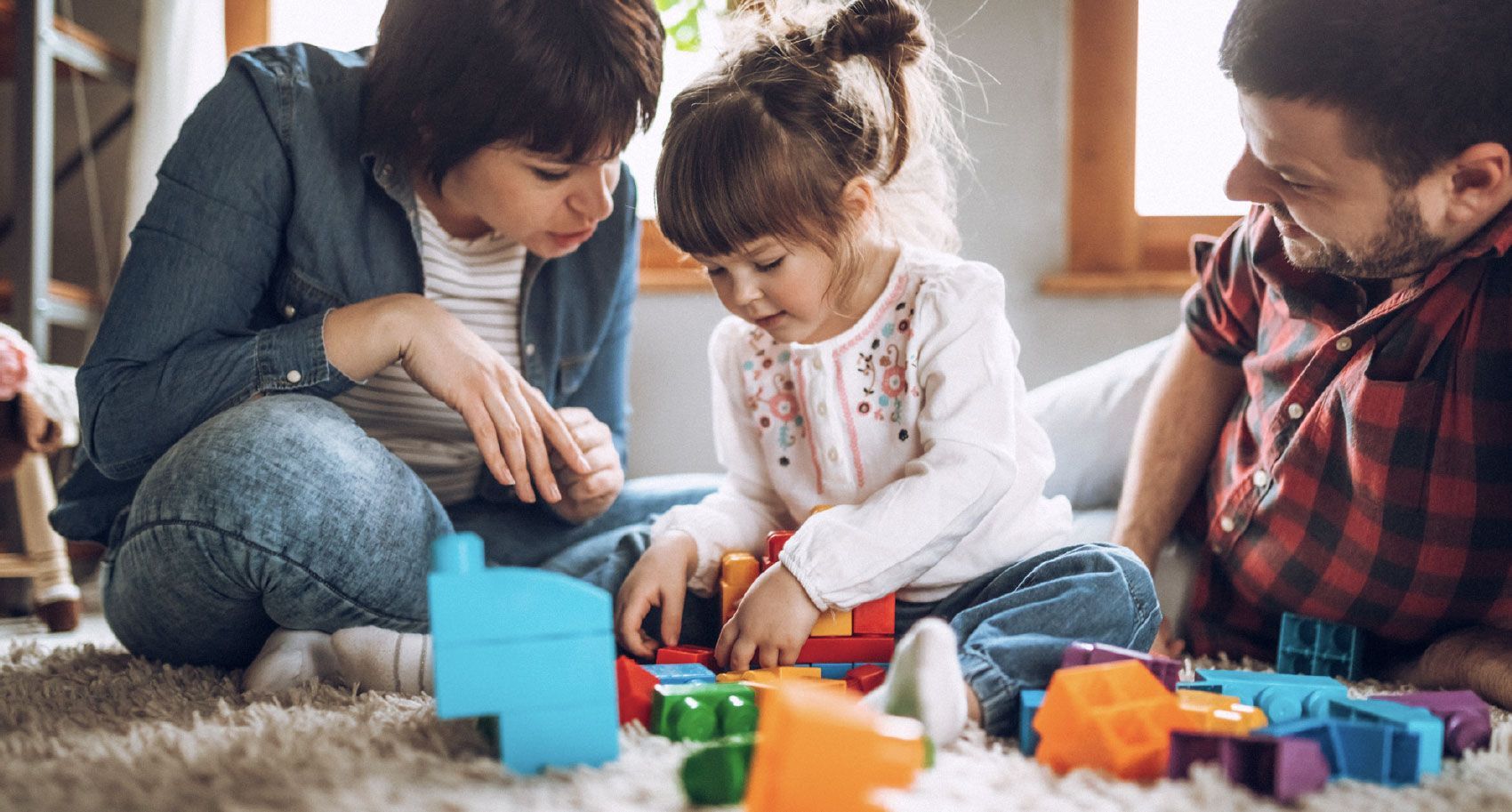My 9-year-old son came home from school one day very quiet and reserved. I realized something was up and started hounding him with questions. "What happened?" "Are you all right?" "What did you do?"
I didn't think about what my son wanted at that moment. I wanted answers. Instead, he withdrew to his room, and I didn't see him again until dinner. I had a lesson to learn!
Maintaining and building healthy relationships requires assertive communication. Nowhere is this more valid than in the area of parenting. I could have handled that day with my son differently to build a stronger relationship.
Hi, I'm Cathy, and I'm on a mission to help parents reach their full potential and create a nurturing and safe family environment. I am not here to beat you up for your past parenting indiscretions or mistakes, but instead to focus on three critical pillars that I learned from being a parent and grandparent that turned myself and my family life around.

5 Benefits of Assertive Communication in Parenting:
- Building Trust and Connection: When you actively listen, choose your words wisely, and set clear expectations, trust is established. Children who feel heard and understood are likelier to confide in their parents, strengthening a solid emotional connection.
- Development of Emotional Intelligence: Assertive communication encourages children to express their emotions healthily. Expressing emotions nurtures the development of emotional intelligence, enabling your child to understand and manage their feelings as they grow.
- Problem-Solving: Open communication provides a platform for mutual problem-solving. When faced with challenges, families can work together to find solutions, teaching children valuable skills for handling difficulties in their own lives.
- Positive Self-Image: Words have the power to shape a child's self-perception. Positive reinforcement and encouraging language contribute to developing a positive self-image, which builds confidence and self-esteem.
- Respect for Boundaries: Clear communication about expectations and boundaries helps your children understand the reasons behind rules. Clear communication promotes a sense of responsibility and respect for boundaries at home and in their interactions.
3 Core Strategies for Assertive Communication
Core Strategy 1: Active Listening - A Foundation for Understanding
Active listening is the foundation for meaningful communication. This skill is vital in understanding what your child says by acknowledging their emotions and creating a safe space to express themselves.
When dealing with your toddler or preschooler, they commonly struggle to express their feelings. Tune in not just to their words but also to their body language and emotions. For instance, if your toddler is upset because they can't find their favourite toy, kneel at their eye level and express empathy . "I see you're sad because you can't find your toy. Let's look for it together," This communicates understanding and fosters a sense of security.

With teenagers, active listening becomes even more critical. Adolescents are feeling various emotions, and as a parent,
it's crucial to offer a non-judgmental space to express themselves. Imagine your teenager comes home visibly upset. Instead of bombarding them with questions or advice, start with a simple, "I'm here for you. When you're ready, I'd love to hear about what happened." This approach conveys support and respect for their autonomy.

Core Strategy 2: Choose Your Words Wisely - The Language of Encouragement
The words you choose as parents impact your children's self-esteem and overall emotional well-being. Positive reinforcement, encouragement, and clear, concise language create an environment where open communication flourishes.
In positive reinforcement, let's consider a scenario where your child proudly presents a drawing they've created. While it's tempting to immediately notice and comment on any flaws, the power of encouragement lies in pointing out the positive aspects first. "I love the vibrant colours you chose, and your creativity shines through! Tell me more about your inspiration" fosters a sense of pride and boosts their confidence.

However, assertive communication goes beyond just praising accomplishments. It also involves framing constructive feedback in a way that nurtures growth. Suppose your 14-year-old brings home a test with a lower grade than expected. Instead of focusing solely on the grade, try saying, "I can see you put effort into studying. Let's work together to understand what we can do differently next time." This approach encourages problem-solving and instills a positive attitude towards challenges.

Core Strategy 3: Set Clear Expectations and Boundaries - Creating a Safe Haven
Youngsters thrive when they have a clear understanding of expectations and boundaries. Clear boundaries provide them with a sense of security and help them internalize values and understand the reasoning behind rules.

For younger children, setting clear expectations can be approached through positive language. Instead of saying, "Don't make a mess," frame it positively by saying, "When you are done playing, let's keep our play area tidy by putting our toys away." Clear expectations instill a sense of responsibility and collaboration.
As children grow older, involving them in setting expectations can be empowering. During a family meeting, discuss household rules and expectations together. Allow your child to express their opinions and concerns, fostering a sense of ownership in maintaining a happier family environment. I invite you to take the first step toward transformation by listening to my podcast, Parenting Youngsters. Join me as we navigate the complexities of parenting, build stronger family bonds, and create a nurturing environment where everyone's self-esteem can soar.

I invite you to take the first step toward transformation by staying updated with our latest content! Subscribe to the Parenting Youngsters newsletter for regular updates, where I navigate the complexities of parenting, build stronger family bonds, and create a nurturing environment where everyone's self-esteem can soar.
Wish Setting Boundaries Was Easier?
Grab your FREE 7-day guide and create boundaries that bring you peace and balance!
All Rights Reserved | Cathy Barker
Site Designed and Developed by Client First Web Design & Graphics
